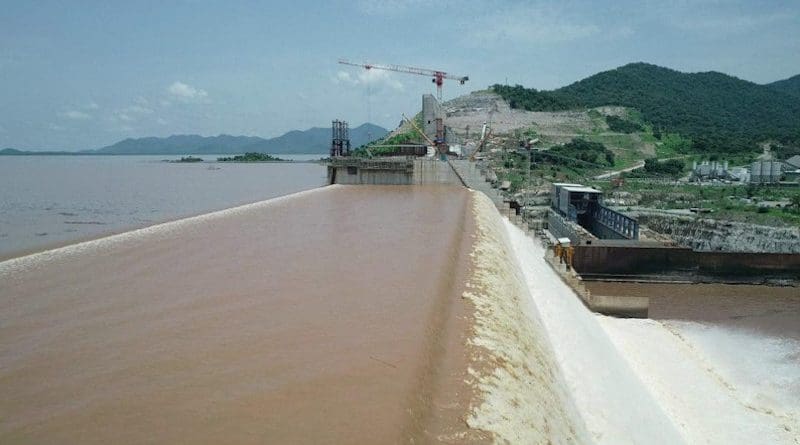Ethiopian Intransigence Over Dam Project Led Egypt, Sudan To Approach UN: President El-Sisi
By Arab News
By Mohammed Abu Zaid
Ethiopia’s intransigence over the controversial Grand Ethiopian Renaissance Dam (GERD) project had left Sudan and Egypt with no option but to approach the UN Security Council on the issue, Egyptian President Abdel Fattah El-Sisi said.
And Addis Ababa’s attempts to impose a fait accompli on the two countries had led to the faltering of negotiations being held under the auspices of the African Union, he added.
El-Sisi had made his comments to Felix Tshisekedi, president of the Democratic Republic of the Congo (DRC), who had called him on Thursday.
The huge Nile dam scheme, set to be Africa’s largest hydroelectric project when completed, has resulted in a near decade-long diplomatic stand-off between Ethiopia and downstream nations Egypt and Sudan.
Ethiopia has maintained that the project was essential to the nation’s development, but Cairo and Khartoum fear it could restrict their citizens’ vital access to water supplies.
El-Sisi said the aim of involving the UN Security Council was to help the three countries move toward a binding agreement to operate the dam within a clear and specific timeframe.
The Egyptian leader noted his appreciation of the DRC’s – current chair of the African Union – concerns over the issue and efforts made by Tshisekedi to sponsor talks between the three countries to try and reach a deal that protected the trio’s interests and preserved their water rights. Tshisekedi hailed Egyptian moves to resolve the impasse through negotiation.
Meanwhile, during a meeting with UN Secretary-General Antonio Guterres, Egyptian Foreign Minister Sameh Shoukry pointed out the need for the world community to help work toward resolving the GERD dispute.
He noted the danger of taking unilateral actions that could impact on the stability and security of the region and Egypt’s Foreign Ministry spokesman, Ahmed Hafez, said the minister had urged the international community to push Ethiopia through the UN to seriously engage in settlement talks.
Shoukry told the Associated Press that he would be calling on the UN Security Council to require Egypt, Sudan, and Ethiopia to negotiate a binding agreement within six months on the contentious issue of water availability from the dam.
He said that almost 10 years of discussions over the hydroelectric scheme on the Blue Nile had failed to secure assurances that water would continue to flow downstream in sufficient volumes to Sudan and Egypt, where 100 million people are dependent on the river as their only source of water.
Tunisia, the Arab representative on the council, has circulated a draft resolution requesting Egypt, Sudan, and Ethiopia to resume negotiations at the invitation of the African Union chairman and the UN secretary-general to finalize a legally binding agreement by January on the dam’s operation and flow of water into it.
It said any deal must ensure, “Ethiopia’s ability to generate hydropower … while preventing the inflicting of significant harm on the water security of downstream states.”

